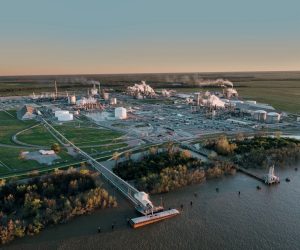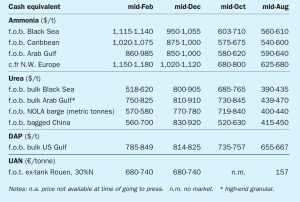
Fertilizer financial scorecard
We compare and contrast the 2021 financial performance of selected major fertilizer producers following the publication of fourth quarter results.

We compare and contrast the 2021 financial performance of selected major fertilizer producers following the publication of fourth quarter results.

Market Insight courtesy of Argus Media

The recently-published IEA Ammonia Technology Roadmap sets out a future pathway for decarbonising the nitrogen industry. New technology options for low-carbon ammonia production are emerging and project activity is on the rise.

More than 300 delegates from over 130 companies and 29 countries gathered for CRU’s Phosphates 2022 conference, 7-9 March.

More than 745 delegates from 335 companies and 50 countries gathered at the Hilton Downtown, Miami, Florida, 21-23 March, for the Fertilizer Latino Americano 2022 conference. The event was jointly convened by Argus and CRU.

Liquid fertilizers are emerging as a high growth, multibillion dollar market. Their growing use is linked to trends such as no-till farming and the greater adoption of precision agriculture. Leading producers and products are highlighted.

Yara and Mosaic shocked markets with a settlement of $1,625/t c.fr for April, up $490/t on March, and the highest ever price recorded at Tampa, as the removal of Russian and Ukrainian ammonia supply impacted global prices, and Baltic rates soared to $1,500/t. However, April saw some of the global dislocations caused by the Russian conflict begin to ease, while the high prices saw buyers in the US delay purchases, leading to the Tampa price falling back $200/t for May loadings.

Spot ammonia prices made steep losses in west of Suez regions following the $200/t drop in the Tampa May contract price in late April, as supply and demand start to rebalance two months after the removal of Black Sea ammonia exports from the market. Yara has settled the Tampa contract price for May with Mosaic at $1,425/t c.fr, a $200/t drop from April.

CRU’s Nitrogen + Syngas conference returned to a face to face meeting for the first time in two years at the end of March this year.

Market Insight courtesy of Argus Media